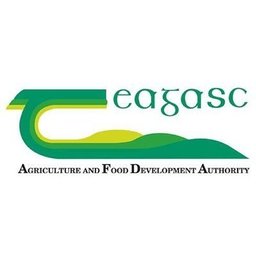Job Description
Duration:
Temporary Post-Doctoral Appointment. This is an externally funded non Grant-in-Aid contract post, the indicative duration of which is 12 months, subject to contract. A panel may be formed from which future similar vacancies may be filled; such a panel will remain active for a maximum period of 12 months.
Basic Function:
Teagasc is seeking to recruit a highly motivated Post Doctoral Fellow in the area of Food Science / Chemistry / Biochemistry / Nutrition to undertake laboratory activities related to the characterisation of bread samples and their digestion and nutrient release profiles in vitro.
Background:
This Teagasc project is a central part of an Enterprise Ireland Innovation Partnership programme, delivered in collaboration with University College Dublin and a leading industry partner in the bakery sector. The main aim is to investigate the effects of breads produced under distinct processing conditions on the digestion and health. Teagasc is leading a work package focused on examining the biochemical and structural changes occurring during in vitro digestion, which will complement findings from a human intervention trial. The research will integrate (i) biochemical assays to monitor nutrient release and hydrolysis throughout the oral, gastric, and intestinal phases of digestion, and (ii) structural analysis using state-of-the-art microscopy at the National Food Imaging Centre.
The Teagasc post-doctoral programme provides training and development opportunities for early career scientists that enhances their experience of learning and equips them with the necessary skills for the next stage of their chosen career in research. Appointees to a Teagasc Post-Doctoral Fellowship will be required to undertake a Level 9 Professional Diploma in Researcher Development delivered by University College Dublin (UCD).
This professional diploma is a flexible, modular programme which embraces a blended learning approach to align with the Post-Doctoral Fellow's role in Teagasc. It is designed to develop competencies and transferable skills in research, professionalism, communication and career development. The majority of the programme is delivered online with the remaining elements delivered in-person at Teagasc locations. This blended approach affords the Post-Doctoral Fellow the opportunity to meet and network with other Teagasc colleagues. During the course of the diploma Post-Doctoral Fellows will have access to a full range of supports including the UCD library, writing centre and careers centre.
This is a research focused training role, the primary purpose of which is to provide early career scientists with the opportunity to develop their research skills and competencies. The Post-Doctoral Fellow will, while working in conjunction with senior research staff, gain insight and experience into a variety of areas including the processes of project and budgetary management, publishing in peer-reviewed academic journals, writing grant applications, and attracting external funding; the development of active collaboration with relevant national and international research communities; the development of communication and presentation skills, leadership and management skills, and overall career development. Modules will be conducted under the supervision and direction of the project leader Andre Brodkorb or other designated manager in conjunction with the Head of Department.
Gain first-hand insights into the Teagasc Post-Doctoral Fellowship Programme from those who've lived it. Click here to explore their stories.
Job Objectives
Duties & Responsibilities specific to this project:
- Undertake research and analysis at laboratory scale.
- Apply in vitro digestion models (static and semi-dynamic methods) models to study the digestive fate of food samples.
- Perform microstructural analysis of food and in vitro digesta samples.
- Perform biochemical analyses to characterize food samples and to quantify nutrient breakdown during in vitro digestion.
- Collaborate with academic and industrial partners to present results and plan experimental work as appropriate.
- Prepare research reports for project partners and leaders, funding agencies and industry partners.
- Assist in the supervision of PhD students.
- Participate in the activity of the Moorepark post-doctorate group.
- Publish findings in peer reviewed scientific journals.
Additional Duties & Responsibilities:
- To interpret research findings and prepare scientific and popular press publications.
- To disseminate research findings to a variety of audiences as appropriate.
- To assist Teagasc in meeting the commitments of the Quality Customer Service Charter and Action Plan.
- To comply with all relevant Teagasc policies and procedures.
- To fully co-operate with the provisions made for ensuring the health, safety and welfare of themselves, fellow staff and non-Teagasc staff and co-operate with management in enabling Teagasc to comply with legal obligations. This includes full compliance with the responsibilities outlined in the Safety Statement.
- To actively participate in the Teagasc Post-Doctoral Fellowship programme and review processes, and to undertake all Post-Doctoral Fellowship training and associated duties as agreed in the Training & Development Plan.
- To take up additional duties as they may arise and be assigned by management.
Skills Requirement
- PhD in food science/technology, nutrition, chemistry, biochemistry or related discipline
- Relevant research experience not to exceed 3 years’ post-PhD
- Demonstrated research and technical expertise in (wet) laboratory skills in one or more of the following areas: structural and/or analytical characterisation of food samples/ingredients, carbohydrate analysis, protein/peptide analysis, advanced microscopy.
- Evidence of research activity (publications, conference presentations, awards) and future scholarly output (working papers, research proposals etc)
- Excellent project management, analytical, report writing and data analysis skills
- An ability to collaborate with team members and PhD students to help build research knowledge and skill and to guide professional development
- Commitment to teamwork and collaborating with colleagues as per our Teagasc Together ethos
- Excellent communication skills (oral, written, presentation) with an ability to enable effective knowledge and technology transfer
- Ability to generate new ideas, unique concepts, models and solutions
Desirable
- Experience in vitro digestion models and/or characterization of digesta (demonstrated research and technical expertise in these areas would be highly desirable).
- Experience in setting own research agenda
- Evidence of teamwork and collaboration with relevant partners
- Track record of scientific publication in peer-reviewed journals.

